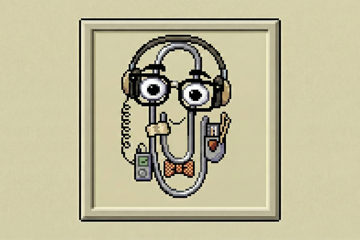 Gang Of Youths
Gang Of YouthsWhen we meet, Gang Of Youths frontman David Le'aupepe and his bandmate Joji Malani are just a few days out from playing a secret show at Sydney's newly reopened Lansdowne Hotel. It's a different type of set for the band, performing acoustically with just two of their usual five. Le'aupepe, for all his cool and composure, is a little uneasy about the performance, as it's the maiden voyage for a lot of the songs from their, at the time, forthcoming album.
"We've been doing it a lot across Europe and the States, so this is the first time we're playing any of the new stuff really in Australia. It's acoustic so I'm not sure how it's going to translate, to be honest. So excited probably isn't the right word, shitting myself is probably the right word," he laughs.
It's a fair sentiment given that it's just a few suburbs over from where he grew up in Sydney's inner west. In his 25 years, Le'aupepe has lived, endured and strived through more of what life has to offer than many three times his age. Between a young marriage and subsequent divorce, finding success at home and abroad, attempted suicide, a widely revered debut album, alcoholism and ARIA nominations, Le'aupepe has burnt it all down and re-emerged atop the ashes - a witty, self-deprecating phoenix with a wry smile - and that's where the band's second album, Go Farther In Lightness, comes in.
"After The Positions, I was really broken and fucked up and not in a good way. Better than I was during the actual recording process and during that part of my life, but I wasn't doing well, I don't think," he explains. "The whole point of Go Farther In Lightness was to make, and is to make, the arc of my life, more or less, about the process of repairing, the process of being more human, more empathic, more authentic to myself, more aware of the people around me, more aware of the world. To open myself back up to love and back up to life and try to negate the things in me that are life negating."
 Le'aupepe with Gang Of Youths @ 170 Russell last year. Photo by Lucinda Goodwin.
Le'aupepe with Gang Of Youths @ 170 Russell last year. Photo by Lucinda Goodwin.
Don't miss a beat with our FREE daily newsletter
There are several noticeable and notable qualities in Le'aupepe that are impossible to ignore; he's endearingly honest, quick-witted and assured, an intent listener and will give you his full attention, though he moves at a million miles an hour. Above all, his level of intelligence and knowledge recall is flooring. As if these attributes weren't enough for one person, his songwriting, vocal and musical abilities are well beyond his years, and they truly shine across the entirety of the 16-track album.
"Three years ago, I was lamenting and I was sad and I was destructive and I just wanted to get all of these nice sentences that encapsulated how I felt about life out. And it was less contingent on a desire to convey ideas and more contingent on the desire to convey my mood and my anxieties and things like that," he explains of the new album.
"And I think that's the real difference, because I want to go further and convey ideas and convey stories with this and I think that the progression that happened, what I realised [was] that I didn't need literal tragedies to inform absolutely everything. I mean on this record, there's actual literal fucking tragedies but I didn't want that to be the basis."
Though The Positions and Go Farther In Lightness are vastly different albums, there is one recurring theme between the two; one solitary magnolia tree. Magnolia was the track that launched Gang Of Youths into the Australian psyche in a big, big way. It's anthemic, catchy and brings hordes of people together in unified song; a stark contrast to the song's birth following Le'aupepe's attempted suicide.
The song Go Farther In Lightness offers the line "All the strangest things keep happening all by my father's old magnolia tree." When asked if the reference is a way to let people know he's doing ok, Le'aupepe is candid in his response.
"Yeah, and also not okay. But I think the reference itself is, I think if I flesh it out more, it's actually more related to my father. You know, the magnolia tree was planted by my father, and my father, his presence is all over this record in different ways, and I think that's the one thing I've never talked about before," he shares.
"But the magnolia tree itself is emblematic of this idea of new life and new breath and possibilities, and a refusal to careen off course or a refusal to kneel. The thing is, my dad bought this tree and the guy at Bunnings or Flower Power or wherever, he said, 'Dude, don't buy those trees. Everyone's been returning them, like they're just no good.' And it was the last one there, and my dad's like, 'Nuh, I'm going to make it grow,' and he did."
Le'aupepe's answer is quick but considered when asked if he feels like that tree is particularly symbolic of himself. He agrees, saying "yeah" a number of times in a hushed tone. It lingers for a minute and he continues with his answer.
"The magnolia flower is the state flower of Louisiana, and I always think about how significant that is of itself as a state [that] has been through, as a part of American war, and not even just Hurricane Katrina, that has been through everything, and I think a beautiful flower that is both temperamental and strong, that can grow to huge sizes or be cultivated in a small space, I think that's its real strength. You know, and then it comes in a variety of different fuckin' colours and sizes and I dunno, I think that's my emblem. I have it tattooed on my chest; my niece, her name is Jupiter Ruth Magnolia. This image of the magnolia flower has been following me around my whole life so potentially, yeah, potentially. Maybe…"
Fast forward a few days and the secret show has rolled around. It proves so popular that the line to get in is well around the corner and the venue is quickly filled to capacity. Le'aupepe is in good spirits, sharing that it's good to be home and his parents are in attendance. He jokes that no matter where in the world the group plays, there's always a group of drunk Aussies at the front demanding they play their best-known track. They play songs old and new, and he takes his time explaining the stories behind their music, earnest and honest, before quickly adding that rather it's "not that I think you're not smart enough to understand them, it's that they're not good enough to get." He and Malani depart the stage after Persevere, before reappearing soon after. Le'aupepe explains that while they normally don't partake in the feigned encore routine, tonight they opted to because "I wanted my parents to see me all cool."
Finally, they break into Magnolia and the crowd erupts, chanting the words back at Le'aupepe, the leader in their pact-like following. There's a lone guy, standing right in the centre of the room. He can't be much older than Le'aupepe himself and stands easily a foot taller than nearly all around him. He's been reserved throughout most of the show; that is until now. The final chorus comes in, and though he has fervently sung along throughout, his arms outstretch and his eyes close. For all the trials, tribulations and tragedies that have led Le'aupepe to this time of triumph in his life, maybe this is what it was always meant to be about; helping people find their salvation, at a Sydney pub on a cold winter's night, and the same the world over.
If you are suffering from depression or need assistance, please contact Lifeline on 13 11 14 or Beyond Blue 1300 22 4636.
















